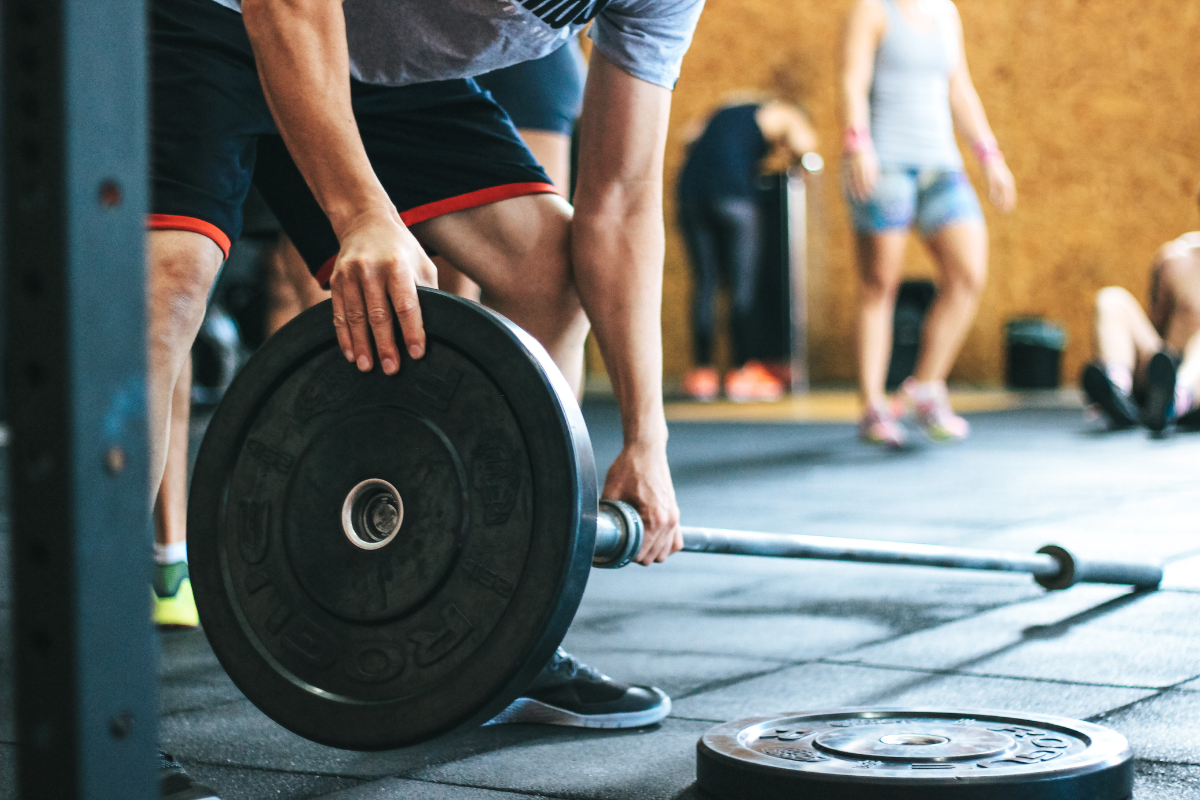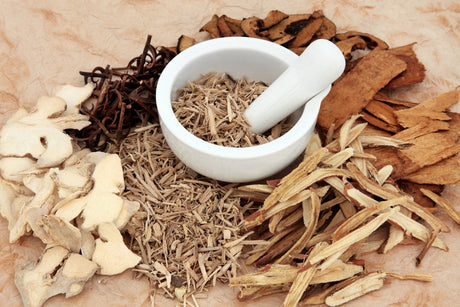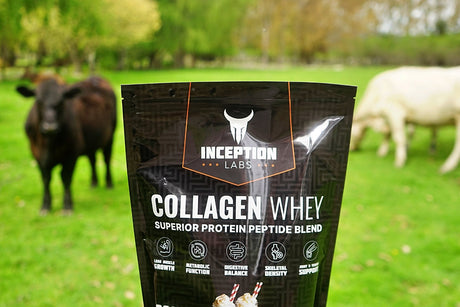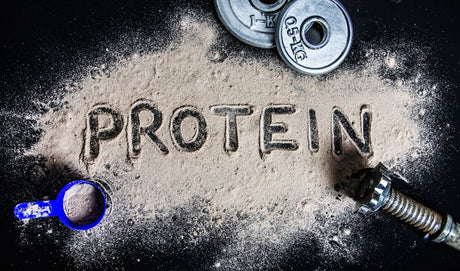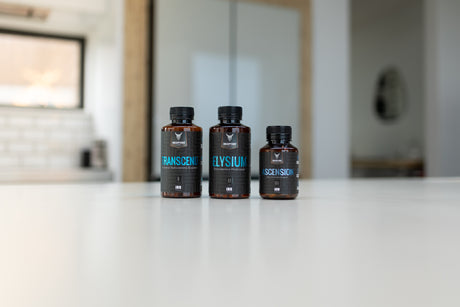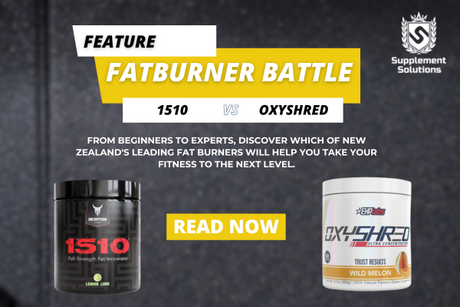Caffeine; the most commonly used psychoactive substance in the world. A cup of coffee in the morning can help to perk you up and get you moving, but too much caffeine can lead to jitters, anxiety, and even insomnia. Some of the most common sources of caffeine include coffee beans, tea leaves, kola nuts (from which cola drinks get their flavour), cacao beans (from which we get chocolate), and guarana berries. Interestingly, even certain types of wine contain trace amounts of caffeine due to a chemical reaction between the grapes and yeasts used in the winemaking process. But what we’re all really interested in is how do we best utilise caffeine in our health and fitness regime, what sources of caffeine are most effective in our pre-workouts, and how do we know when enough is enough (plus, what do we do to get the same results beyond this)?
Caffeine sources in pre-workout supplements
Caffeine can improve alertness, reaction time, and focus when taken in appropriate doses, and it can also increase endurance and delay fatigue. For this reason, it is often added to pre-workouts.
Caffeine sources commonly used in pre-workouts include;
Caffeine anhydrous
Caffeine anhydrous is produced by removing caffeine extract from coffee beans through solvent extraction. The resulting pure caffeine powder is then dried to remove all water, yielding a substance containing roughly 96-98% caffeine by weight. It is usually preferred by those who use large doses of caffeine for its stimulatory effects. It is more stable than its liquid or ground counterparts, maintaining its potency for much longer, allowing users to get a more even energy boost over time.
Caffeine citrate
Caffeine citrate is a combination of caffeine and citric acid, often used to improve mental alertness and physical performance. Caffeine citrate is absorbed more gradually than caffeine alone, providing a more sustained energy boost. It is thought to be better tolerated by individuals who have trouble absorbing non-protein bound forms of caffeine. Citrate can help improve blood flow and increase oxygen uptake by cells, further enhancing physical performance. It also helps to buffer lactic acid, leading to improved exercise performance. Caffeine and citrate can have synergistic effects when combined, making them more effective than either ingredient alone. For this reason, caffeine citrate is a popular choice for athletes who are looking to get the most out of their workout.
Green tea
Green tea is packed full of essential nutrients and antioxidants that can help to boost energy levels, improve muscle recovery times, and amplify performance. Some of the key compounds in green tea include caffeine, EGCG, L-theanine, and catechins. Caffeine works by stimulating the central nervous system and promoting thermogenesis, while EGCG helps to activate the metabolic process. In addition, L-theanine helps improve focus and mental clarity. For these reasons, there is a growing trend in the world of pre-workouts toward incorporating green tea into the mix.
Yerba mate
Yerba mate is a shrub native to South America that has been brewed into a herbal tea for centuries. The leaves of the yerba mate plant contain caffeine and several other compounds, including saponins, flavonoids, and amino acids. These chemicals work together to produce a wide range of effects, including increased energy levels, mental clarity, and improved physical performance. Yerba mate is also rich in antioxidants and vitamins, which can help to boost immunity and protect against chronic diseases. It is also high in chlorogenic acid; a compound demonstrated to boost metabolism.
How much is too much?
The use of high-stim pre-workout supplements to improve athletic performance is becoming increasingly prevalent in the fitness community. Unfortunately, however, this rise in popularity has also been accompanied by an increase in cases of caffeine intolerance. Caffeine intolerance has a range of adverse effects, including increased anxiety and heart rate, dizziness, difficulty sleeping, and gastrointestinal discomfort.
The leading cause of caffeine intolerance is the regular consumption of high levels of caffeine on a consistent basis. Many pre-workout formulas include large doses of caffeine to give users an extra boost in energy and focus before their workouts. In time, high caffeine levels can lead to dependency and result in adverse reactions when that same dose is consumed on a daily basis. Additionally, those who are more sensitive or predisposed may experience these symptoms even with lower doses or less frequent usage.
So how much is too much? The answer may vary depending on the person. When it comes to caffeine and pre-workouts, there is no one-size-fits-all answer. The amount of caffeine that is safe for one person may be too much for another. Several factors need to be considered, including body weight, tolerance, and the type of exercise being performed.
Generally speaking, an entry-level pre-workout supplement will contain around 100-200 mg of caffeine per serving. More advanced pre-workouts will have between 300-500 mg per serving. 100-200 mg is generally considered a safe amount for most people. However, it is always best to start with a lower dose and gradually increase as needed. This will help you to gauge your own tolerance and avoid overconsumption.
Alternatives to caffeine in performance-enhancing supplements
For avid users of high-stim pre-workouts, the mere suggestion of reducing caffeine intake to offset caffeine intolerances might strike as lousy counsel. Many traditional pre-workout supplements rely solely on increasing caffeine to give the desired effects. However, with the global market size for pre-workouts valued at USD 12.6 billion in 2019 with expected compound annual growth of 8.3% from 2020 to 2027, leading supplement brands are increasingly replacing brute force with smarts in the formulation process in a bid to keep their leading stakes in this growing market. As scientific research creeps into the sports supplementation sector, we’re beginning to see those at the forefront adopt intelligent, clinically-researched alternative and complementary compounds and include these in their formulations. Gone are the days of the traditional “bro” approach of just shovelling more of the same; the sports supplementation market is now more intelligent and more engaged than ever in the science behind the products it consumes.
While caffeine can be an effective tool to boost energy levels and improve performance, it is not the only option. The most intelligent and cutting-edge pre-workouts include the following in their formulations:
Nootropics
Nootropics, also called "smart drugs," are a class of substances widely used to enhance cognitive function, boost mental performance, and provide a sustainable energy boost without the jitters and crashes associated with caffeine. Some common nootropics include L-theanine, lion's mane mushrooms, and rhodiola rosea. These substances work by enhancing various aspects of brain chemistry, such as increasing neural communication, improving blood flow to the brain, boosting cerebral energy metabolism, or modulating neurotransmitter levels. Although the overall effects of nootropics can vary depending on their specific ingredients and dosages, research has shown that these substances can have benefits for a wide range of cognitive functions, including memory recall, problem-solving abilities, attention span, and focus. Some nootropics have also been shown to slow age-related cognitive decline and even promote neuroplasticity - or the flexibility and capability of neurons to adapt to different stimuli over time.
Found in:
 |
 |
| Inception Labs Valor | Man Sports Gameday |
 |
Adaptogens
Adaptogens are plant-based substances that help the body adapt to stress. They have become increasingly popular in pre-workout supplements because of their ability to increase energy and endurance without causing stimulant side effects like jitteriness or restlessness. Compared with caffeine, adaptogens offer many benefits that make them a more versatile and effective ingredient for enhancing performance. For one, adaptogens can last longer in the body compared with caffeine, allowing users to reap the benefits of increased stamina and mental focus for hours after taking them. In addition, adaptogens promote overall well-being by helping the body balance hormone levels and support overall health.
Found in:

|
| Inception Labs Valor |
No doubt, pre-workouts are designed to help you have an edge in the gym. But what if you could supercharge your pre-workout with even more powerful ingredients? You may be surprised at the performance boost you get from adding nootropics and adaptogens to your supplement regimen. These substances can help improve focus, energy levels or both - allowing for greater workouts! When used with caffeine, they create a synergistic effect that can take your performance to the next level without increasing the undesirable side effects associated with high-stim, brute-force caffeine dumping.
Give one of our recommended pre-workouts a try when you next stock up at Supplement Solutions.
Authors
Walley, Matt. Walley, Elise. 2022. How to pick an effective pre-workout: Is it all about caffeine?


